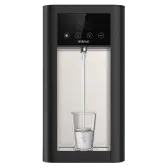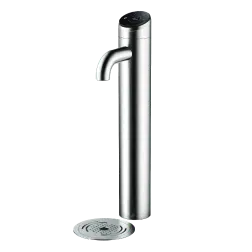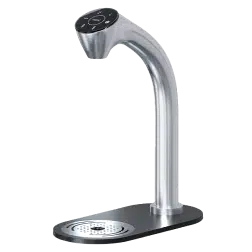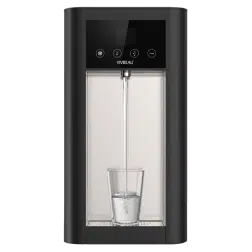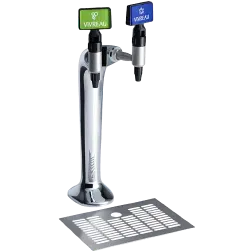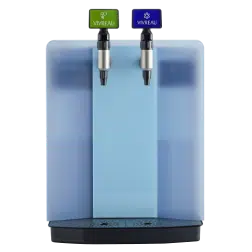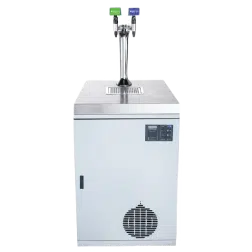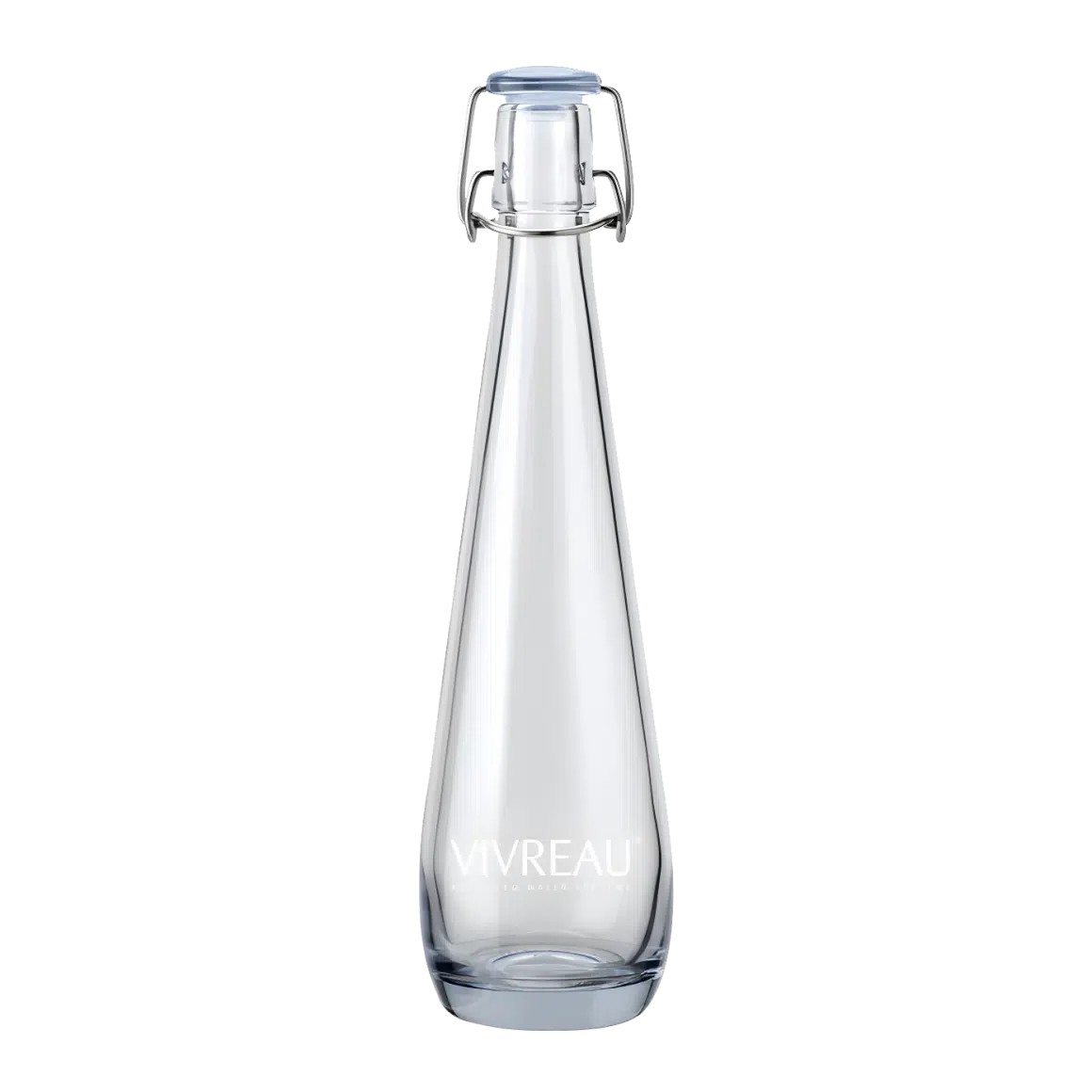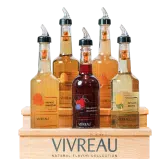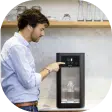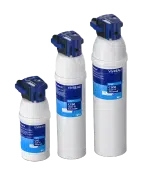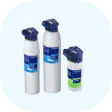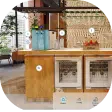The Hidden Ingredient Shaping Every Cup
Water may be the most overlooked ingredient in hot drinks, but it’s also the most important. Coffee and tea are more than 95% water, and inconsistent quality can affect taste, equipment performance, and even sustainability. To better understand these challenges, and to introduce Vivreau’s new High Capacity High Flow (HCHF) filters, we spoke with two experts:
- Peter Kelsch , F&O Imports
- Carlos Rodriguez, Vivreau Professional Filters
In this Q&A, they share real-world insights into water challenges, equipment protection, and what operators should know about filtration.
Q1: F&O has been working with Vivreau for years. How did the partnership begin, and why has it been so successful?
Peter: My connection with Vivreau started when Anastasia reached out while developing a launch strategy for Vivreau Professional Filters. I’d been working in espresso equipment sales for years, selling different types of filtration, and had broad experience across equipment brands and applications. She asked me to share what I’d seen in the market — usage patterns, competitive landscape, and successes with softening technologies.
From there, the relationship grew naturally. F&O already had national reach, representing multiple brands across the foodservice industry, not just coffee but also combi ovens and other equipment. Becoming one of Vivreau’s first distributors made sense: we could provide valuable market insights while also delivering the filters to operators across North America. It’s been a great partnership because it combines Vivreau’s innovation with our distribution strength.
Q2: What does F&O Imports specialize in?
Peter: F&O is a multi-divisional business built around espresso and specialty coffee. The name actually stands for Foundations and Opportunities: importing is our foundation, and spotting new opportunities in the market is how we’ve grown.
We started by importing Italian espresso machines and coffee. Today, we operate nationally as an importer, wholesaler, and manufacturer’s representative. About half of our business is supplying espresso equipment — often full delivered-and-installed packages — to foodservice companies. The other side includes products like syrups, flavorings, and specialty coffee supplies. Essentially, we focus on giving operators everything they need to build a complete coffee program.
Q3: What are the most common water-related challenges your clients face?
Peter: Without a doubt, the biggest issue is limescale. Across North America, water often comes straight from aquifers, treated just enough to meet municipal standards. The result is high calcium levels that cause scale buildup in espresso machines, coffee brewers, hot water boilers — even cold water systems in some regions.
The impact is huge: scale clogs valves, restricts water flow, and changes both pressure and temperature tolerances. If you’re counting on equipment to deliver water at the right rate, pressure, and temperature, scale throws all of that off. That means operators not only face costly repairs but also inconsistent taste in the final product.
Carlos: Exactly. And one thing operators sometimes forget is how much water chemistry can vary, even within the same city. Seasonal changes in municipal water treatment can alter both taste and odor. Filtration evens that out, so customers don’t notice those fluctuations in their cup.
Q4: How does filtration address those problems?
Peter: Filtration solves two categories of problems: particulates and chemicals. On the particulate side, filters ensure water is consistently clean, with little or no sediment entering equipment. On the chemical side, filters remove chlorine and chloramine — the most common municipal treatments — which are corrosive over time and also affect taste.
For operators, this means two things: the coffee and tea taste better, and the equipment lasts longer. You’re preventing buildup, reducing corrosion, and protecting seals, boilers, and other critical parts.
Carlos: That’s the heart of it — filtration ensures consistency. No matter the season, no matter the local water chemistry, your drinks taste the same and your machines don’t suffer unnecessary wear.
Q5: Why is the launch of Vivreau’s new High Capacity High Flow (HCHF) filters significant?
Carlos: Our existing filters were excellent for espresso and targeted applications, but high-volume environments — banquet brewers, hot water towers, large cafés — needed a different solution. With HCHF, we can now serve operators who go through a lot more water but still want to maintain quality and efficiency. It rounds out our portfolio, covering everything from espresso to ice machines to drinking water taps.
Q6: How do HCHF filters compare with other solutions in the marketplace?
Carlos: It’s not brand-new technology, but it’s technology applied in the right way. Many competitive filters are smaller, designed for quick replacement cycles. HCHF gives operators a longer-lasting solution that’s easier to manage and less disruptive.
Peter: Right. Most filters in the market are built for relatively low usage — maybe 1,000 gallons — which means they’re used up quickly in a busy operation. That model often prioritizes selling more filters rather than solving operator problems.
Vivreau has taken a different approach: the HCHF filters are rated for up to 40,000 gallons, which means most operators only need to replace them once a year. That’s cost-effective, it reduces waste, and it gives operators peace of mind that they won’t run out of filter capacity mid-season.
Q7: What do operators notice when they start using Vivreau filters?
Carlos: The first thing is fewer service calls. Equipment just works more reliably when water is properly filtered.
Peter: And consistency. Without filtration, operators often notice seasonal changes in taste and odor — customers even complain about tap water tasting “off” in the summer. With filtration, those issues disappear. Operators stop hearing complaints, and customers simply enjoy their drinks. That’s the real success: no news is good news.
Q8: What industry trends are driving more awareness around water quality?
Peter: Over the last decade, and especially the last five years, coffee and tea have been redefined as premium food experiences. Roasters and tea producers talk about flavor notes and brewing precision. That experience depends on stable water chemistry.
The same is true for cold beverages and ready-to-drink products. Manufacturers always filter water for consistency, and now cafés and restaurants are realizing they need to do the same at the point of service. Customers are paying for premium beverages, and they expect premium consistency.
Carlos: That trend is only growing. As consumers become more educated about what’s in their cup, operators can’t afford to overlook water quality.
Q9: Beyond taste and performance, how do filters contribute to sustainability?
Peter: Sustainability often comes down to energy and efficiency. Scale buildup forces equipment to work harder, wasting energy and shortening its lifespan. By preventing that, filters indirectly reduce energy use and extend equipment life.
What I like about Vivreau’s approach is the focus on long-life filters. Instead of swapping filters every few months, operators can often go a full year on a single HCHF filter. That reduces waste, saves time, and cuts down on costs — all while protecting the environment.
Q10: What advice would you give operators evaluating water filters?
Peter: Plan filtration early, ideally during the design phase of your café or restaurant. Too often it’s an afterthought, and by then you’re stuck with costly retrofits. The best thing operators can do is engage with experts who can recommend the right system for their specific usage.
Companies like Vivreau provide digital tools and consultative expertise that make it easier to choose the right solution from the start. Do that, and you’ll save money, protect your equipment, and ensure your hot drinks taste great every time.
Final Thoughts
Water may not be the most glamorous part of your hot drink menu, but it’s the foundation of quality, consistency, and sustainability. With the launch of the High Capacity High Flow (HCHF) filters, Vivreau and their distribution partners are helping operators tackle water challenges head-on, with solutions that protect equipment, enhance flavor, and make filtration easier to manage.
Lastest Posts



